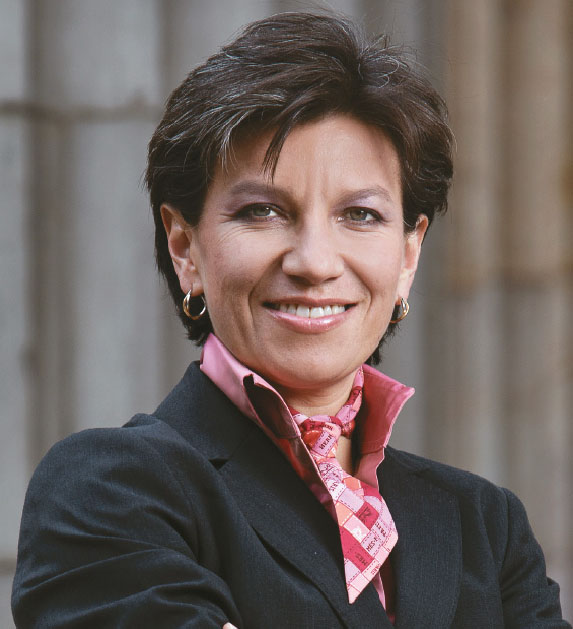Colombian capital elects first gay female mayor
Newly-appointed Claudia López is both the first female and the first openly gay person to serve as the mayor of Bogotá, the capital of Colombia.
Claudia López has just been elected as the first female mayor of Bogotá, the capital of Colombia. Now holding what is considered to be one of the most powerful positions in Colombian government, second only to the president, López is breaking barriers in an increasingly accepting Colombian society.
Not only is López the first woman to hold the position, she is also the first openly gay person to be elected. Both López and her partner Angélica Lozano have been campaigning for the Green Alliance, a center-left party in Colombia which stands for reform and social justice.
The vote on Sunday, Oct. 27 resulted in López’s win with 35.21% of the votes, edging out her closest competitor Carlos Galan by about 3%, according to CNN. Her win, with over 1.1 million votes, was surprising based on the political climate of Colombia, a country known for its conservative, Catholic voter turnout. The positive response to her campaign was aided by her outspoken nature as an advocate for minority rights and security. She plans to expand police presence in Bogota and fight child labor, among other reformist policies.
López prides herself on her stance against “machismo,” a strong masculine presence in government. She told CNN en español, “Colombia is a country that has advanced in many things but still it’s got a lot of machismo; it’s a very conservative country.”
However, CNN also reported López saying in her victory speech that “this is the day of the woman. We knew that only by uniting could we win. We did that. We united, we won and we made history!”
Colombia is no stranger to machismo and the prejudices that stem from its presence. According to TIME, Columbia has the tenth highest femicide rate in the world, and there are also numerous cases of violence against women countered by a rise in women in grassroots movements.
Knowing this, Guilford first-year Katherine Brown believes that López’s victory is a huge step for Colombia.
“It’s good that women can have a strong role model in the government and have a voice to speak for them,” said Brown.
First-year Janice Wong agrees, and believes López’s influence could be wider than just her own country.
“I think her win is especially important for Colombia since she’s the first, so it not only holds great significance but also shows others that it is indeed possible for a woman to be in politics, not only in Colombia but for the rest of the world as well,” said Wong.
Unfortunately, Wong had not heard of the election previous to her interview, so she didn’t feel as though López’s win will have too big of an effect on American politics.
“Just one tweet from Trump would easily drown out Lopez’s win, and America has never been a country that looks to others for guidance anyways,” Wong said.
Others, such as Guilford first-year Rochan Bakthisaran, believe that López’s win is important but not necessarily a huge political statement.
“I don’t think (her sexuality or gender) matters. What is important is competency,” said Bakthisaran. “However, what this shows is that at least in Colombia there isn’t a major prejudice preventing gay people from coming into power. I believe that is a good step because potentially competent people are not being ruled out arbitrarily.”
“I see this as an indicator of change, rather than a catalyst for change,” Bakthisaran added.
However, Brown believes that López’s steps towards social justice cannot be ignored on a worldwide scale. She hopes that López’s win can inspire candidates like Elizabeth Warren and Pete Buttigieg to break barriers within American politics.
No matter how wide López’s influence reaches, there is no denying that her election to mayorship in Bogotá was groundbreaking in Colombia.
Up until 1985, the mayor of Bogotá was appointed directly by the sitting president of Colombia. Although Colombia is relatively progressive in terms of LGBTQ+ rights compared to other nations in the region, some are hoping that this new diversity serves as a precedent for other Latin American elections.
“At the end of the day, this means that in the future the door is more open for talented candidates to shine regardless of race, sex, creed or any other alignment,” said Bakthisaran. “That is a good thing.”
Editor’s note: This story originally was published in Volume 106, Issue 5 of The Guilfordian on Nov. 8 2019.











